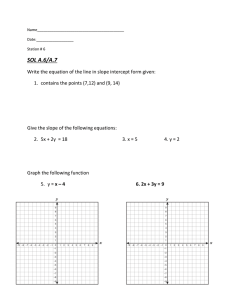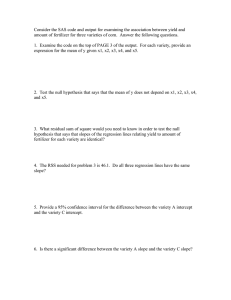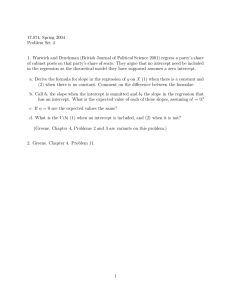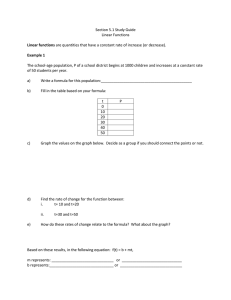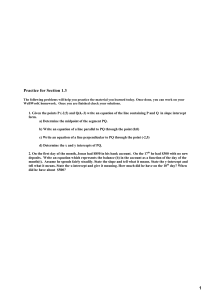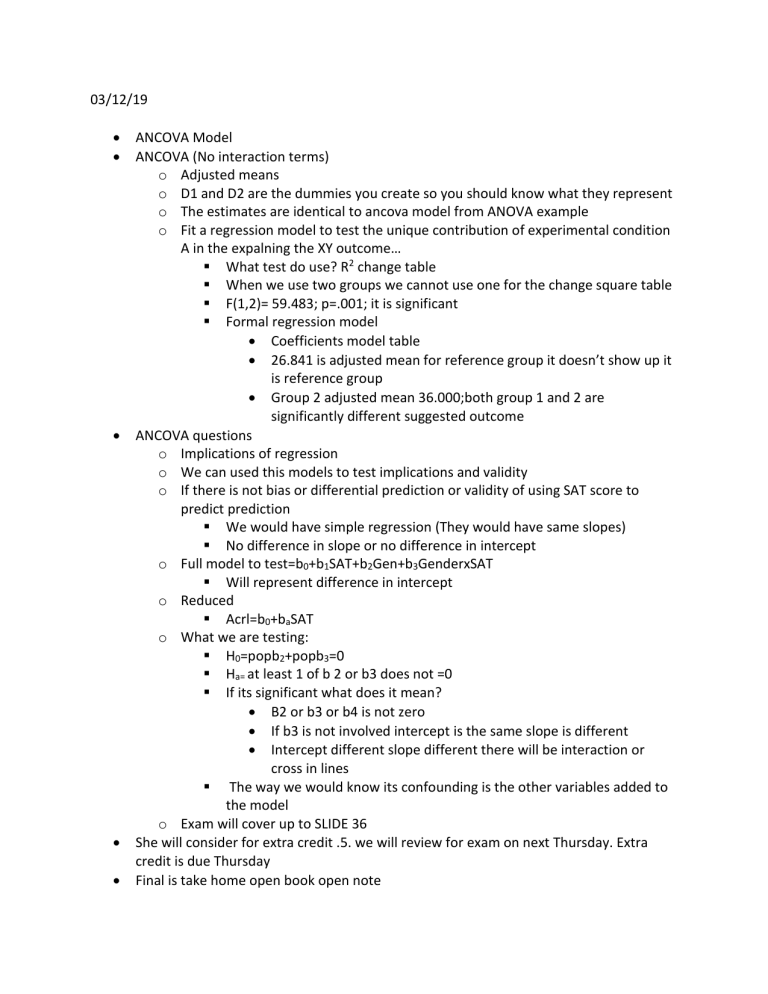
03/12/19 ANCOVA Model ANCOVA (No interaction terms) o Adjusted means o D1 and D2 are the dummies you create so you should know what they represent o The estimates are identical to ancova model from ANOVA example o Fit a regression model to test the unique contribution of experimental condition A in the expalning the XY outcome… What test do use? R2 change table When we use two groups we cannot use one for the change square table F(1,2)= 59.483; p=.001; it is significant Formal regression model Coefficients model table 26.841 is adjusted mean for reference group it doesn’t show up it is reference group Group 2 adjusted mean 36.000;both group 1 and 2 are significantly different suggested outcome ANCOVA questions o Implications of regression o We can used this models to test implications and validity o If there is not bias or differential prediction or validity of using SAT score to predict prediction We would have simple regression (They would have same slopes) No difference in slope or no difference in intercept o Full model to test=b0+b1SAT+b2Gen+b3GenderxSAT Will represent difference in intercept o Reduced Acrl=b0+baSAT o What we are testing: H0=popb2+popb3=0 Ha= at least 1 of b 2 or b3 does not =0 If its significant what does it mean? B2 or b3 or b4 is not zero If b3 is not involved intercept is the same slope is different Intercept different slope different there will be interaction or cross in lines The way we would know its confounding is the other variables added to the model o Exam will cover up to SLIDE 36 She will consider for extra credit .5. we will review for exam on next Thursday. Extra credit is due Thursday Final is take home open book open note No class on the April 9th Tuesday Power point slides and SPSS handouts are important to have POST MIDTERM MATERIAL Data exploration o What are assumptions for aggressions? Normal distribution Homotestasity Condidtional distribution of Y variable Model linear relationship among our variables o Box plot -________X3 Q3 Q2 Q1 1 ____X3 Tells us when the population is skewed or how distribution of this goal is Bivariate displays: o Scatter matrix: we can tell linearity from scatter matrix o We can tell homoscastasity o The reason why we used this lowess fit line is to pick the larger outward area to give us a smoother curve Average group of means on lowest fit line or area of bivariate displays to give us smoother curve, narrower will give you more bumpy curve Properties of OLS estimates o When assumptions hold: Unbiased estimates of population B Consistent: larger sample size our estimate behaves better; estimation for population mean Efficient Best linear unbiased estimator (blue) Assumption checking o Form relationship: scatterplot of DV against each o Goes in line with SPSS handout o Residuals from linear left and quadratic right models A line straight across e on y axis if points around line its okay If there is a strong change in direction. The relative scatter is largest in the middle Asusmption checkin -cont o Non independence of residuals o Plot residuals against the order of participation or time variable o If you have ups and downs of serial order it means oyu have some dependence o Auto correlation: should be some correlation between adjacent observations
